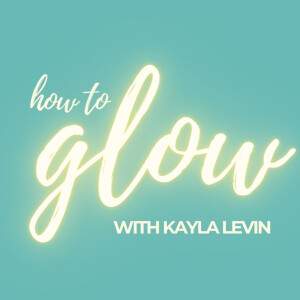
How to Glow: The Jewish Woman's Marriage Boost
Religion & Spirituality:Judaism

This week I’m answering a listener question and I think it’s a topic that will be so fun to dive into. Let me start by reading what she wrote:
Could you discuss “the importance of self-esteem: how both poor and healthy self-esteem can influence our relationships, and how to strengthen it. I realise that this is absolutely a backbone of all your material, but maybe it's worth revisiting a basic.”
Self-esteem is definitely a hot topic, and it’s one of those things that we talk about so much that we actually can lose touch with SPECIFICALLY what it means.
So let’s start by defining our terms.
Miriam-Webster defines self-esteem as: “a confidence and satisfaction in oneself : SELF-RESPECT”
So essentially, self-esteem is nothing but the thoughts we have about ourselves.
But that’s not how we talk about self-esteem. The way we talk about self-esteem, if someone didn’t have a clue what it was, it sounds more like a physical condition you have or don’t have. She doesn’t have self-esteem. That will hurt her self-esteem.
And since we discuss self-esteem in this way so consistently, we start to act like it’s a physical thing we can control and grow and hurt and effect.
Not a series of thoughts.
We all have the thoughts we go back to the most. The way our brain is wired, the more we think a thought the easier and more automatic it becomes to think it --or sometimes a specific major event will just give us one really deeply embedded thought right away.
And the reason I want to break it down for you is this:
If I think I need to work on my self-esteem, or I think I don’t have good self-esteem, those are also thoughts. And neither one is terribly empowering.
So I want to offer to you that self-esteem isn’t really a thing. It’s not. You can’t touch it or measure it. No two people will exactly agree on it. It’s totally subjective. Can you see that?
And when you don’t have a thing called “self-esteem” that is causing you to act a certain way or that you need to work on or that he has a problem with (I’ve coached on all of those, multiple times), what are you left with?
What you’re left with is a question: why did I act that way?
And it always comes back to a thought.
I don’t know what I’m doing.
I don’t know how to be married.
I’m no good at this.
I can’t learn.
The commuter train you always took before you hop on without even noticing.
The train that goes downtown to the dangerous neighborhood you let fly by.
And you can just sit in the station and watch them all go by.
I’m more interested in the person you can be than how accurately you’ve described all your shortcomings.
I still have negative thoughts about myself. But I just don’t spend so much time there unless I feel I need to do some major soul searching. Which sometimes I do. And I make changes.
So the most motivating thing, I think, is to remember: how do I want to show up?
How do you want to show up in your marriage?
Are you willing to skip some of your comfortable, recognizable trains to get there?
Are you able to focus on HIM and what you’re BUILDING and not on you?
Stop riding those trains. Let them get old and rusty.
Get clear on where you want to go. Then you’ll have a better idea of how to get there.
To take this work deeper and learn the critical research that will help you understand and support your husband and your marriage better, check out the First Year Married course at www.firstyearmarried.com. Join in March and be part of our March challenge!
More Episodes
 2022-09-22
2022-09-22
 2022-09-11
2022-09-11
 2022-09-03
2022-09-03
 2022-08-28
2022-08-28
 2022-08-21
2022-08-21
 2022-07-26
2022-07-26
 2022-05-29
2022-05-29
 2022-05-01
2022-05-01
Create your
podcast in
minutes
- Full-featured podcast site
- Unlimited storage and bandwidth
- Comprehensive podcast stats
- Distribute to Apple Podcasts, Spotify, and more
- Make money with your podcast
It is Free
- Privacy Policy
- Cookie Policy
- Terms of Use
- Consent Preferences
- Copyright © 2015-2024 Podbean.com





